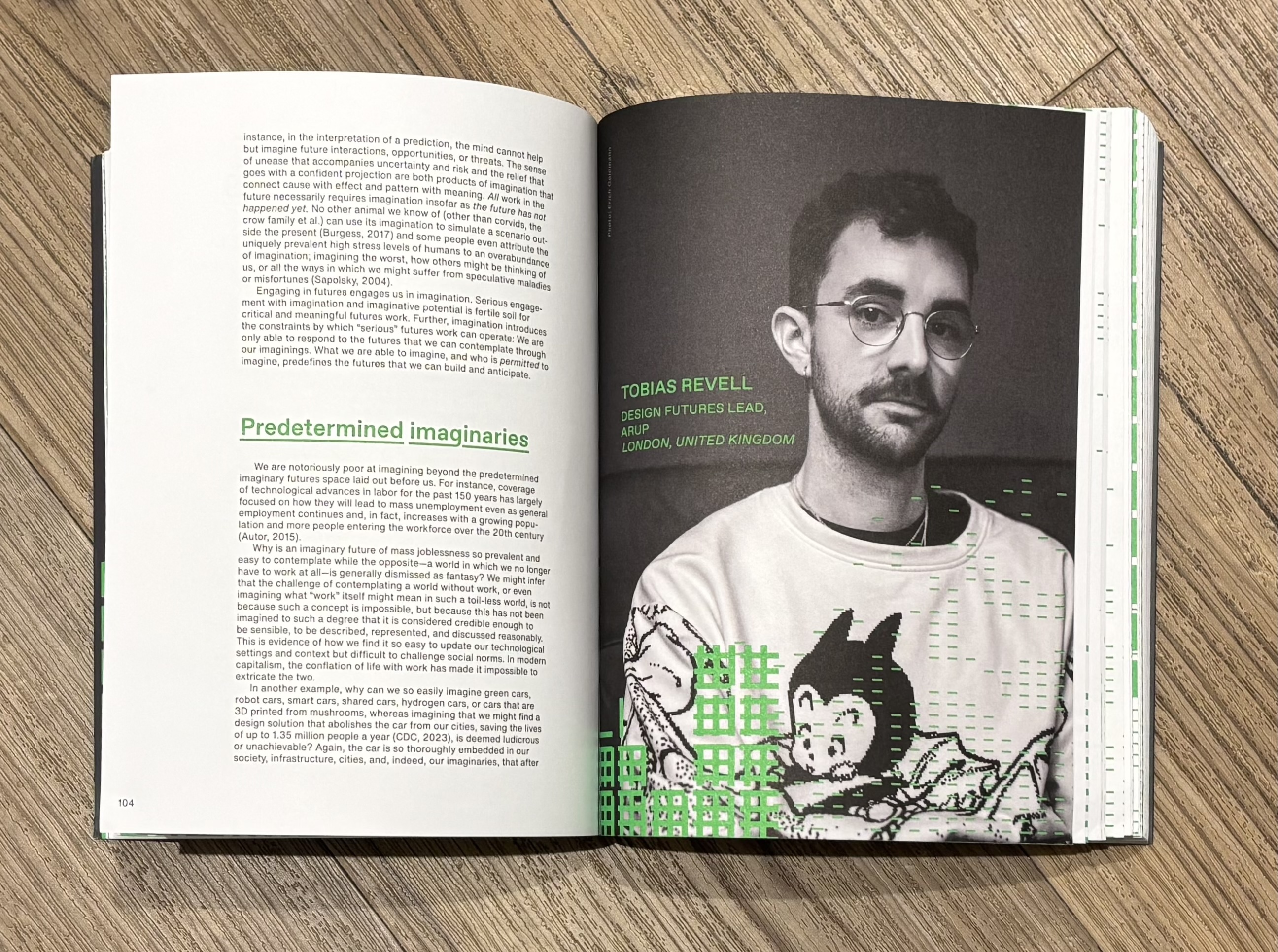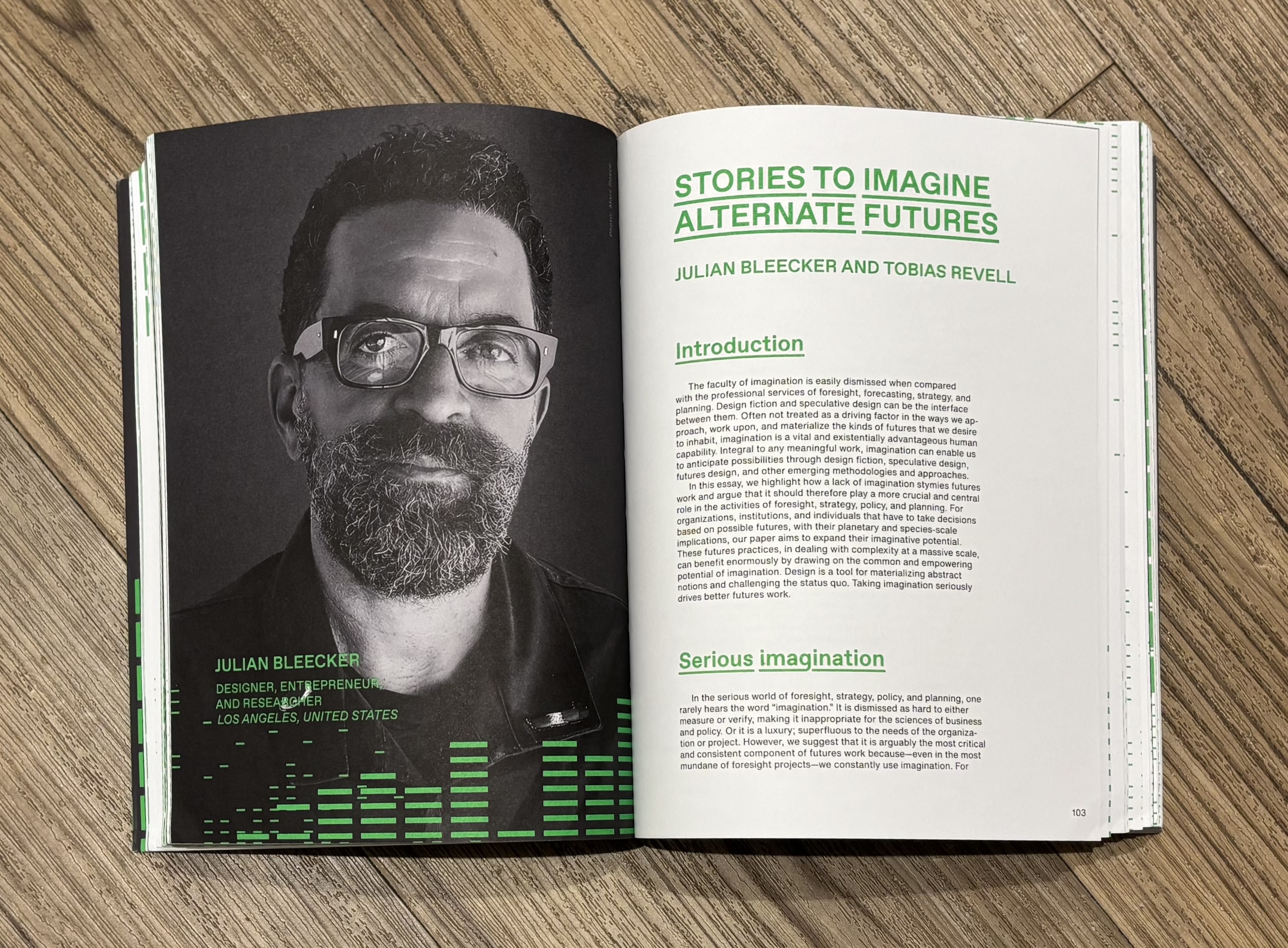

Stories to Imagine Alternate Futures — Practices of Future-casting – 2024-11
Chapter in the book ‘Practice of Future-casting’ co-authored with Julian Bleecker. The book extends from the Desired Futures 6 event held in Spring 2023.
What do designers, scientists, entrepreneurs, and politicians have in common? They all want to shape the future. But how can you make the future – that which does not yet exist – tangible for others?
In this book, over 40 thought leaders from the worlds of business, politics, art, and science address the issue of "futurecasting." It includes texts by Alex McDowell, the award-winning creative director who worked on Steven Spielberg’s future films; by Angela Wilkinson, who reports on her work as Secretary General of the World Energy Council; and by David Kirby, who writes about the valuable collaboration between industry and science fiction.
“The faculty of imagination is easily dismissed when compared to the professioal services of foresight, forecasting, strategy, and planning. Design fiction and speculative design can be the interface between them. Often not treated as a driving factor in the ways we approach, work upon, and materialise the kinds of futures we desire to inhabit, imagination is a vital and existentially advantageous human capability. Integral to any meaningful work, imagination can sense-into possibility through design fiction, speculative design, futures design and other emerging methodologies and approaches.
In this essay, we highlight how a lack of imagination stymies futures work and argue that it therefore should play a more crucial and central role in the activities of foresight, strategy, policy and planning. For organisations, institutions, and individuals that cast their lot into possible futures, which have planetary and species-scale implications, our paper aims to expand their imaginative potential. These futures practices, in dealing with complexity at a massive scale, can benefit enormously by drawing on the common and empowering potential of imagination. Design is a tool for materialising abstract notions and challenging the status quo. Taking imagination seriously drives better futures work.”
On ResearchGate